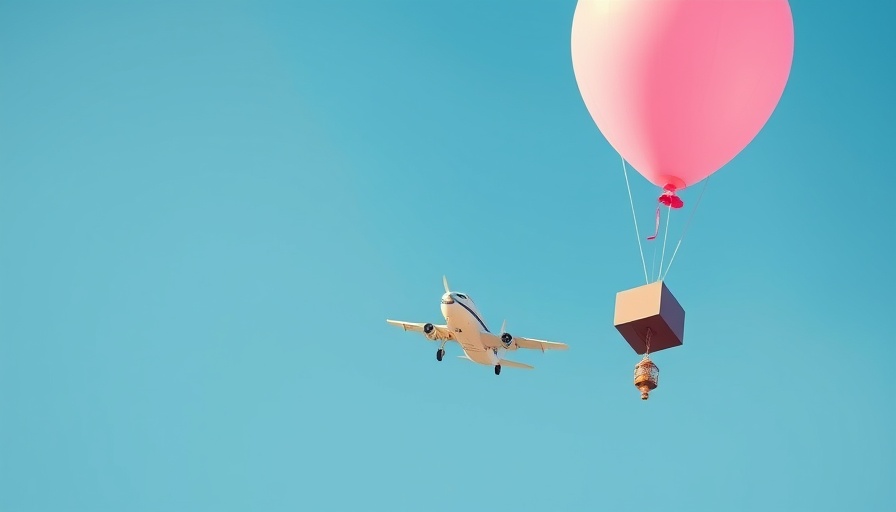
Unpacking Your Flight Anxiety: The Growing Fear of Flying
Flying should be a thrilling experience, a gateway to new destinations and adventures that digital nomads cherish. However, for many, this excitement is overshadowed by intense anxiety, often triggered by turbulent flights, aircraft incidents, or personal fears. A recently published article highlights that while a significant majority of Americans acknowledge the safety of flying, many are gripped by anxiety due to sensational news stories about plane incidents. In fact, surveys indicate that 65% of individuals feel less secure about flying amid rising reports of safety issues.
Understanding Flight Anxiety: It’s More Common Than You Think
Flight anxiety is not merely an individual condition; it often encompasses a combination of phobias and anxiety disorders. As Dr. Jonathan B. Bricker notes, many who experience this fear may have a history of anxiety or have endured a challenging flight that marked a shift in their perception of flying. This sudden onset of anxiety can occur even for seasoned travelers, proving that anyone can struggle with it.
Tools For Overcoming Flight Anxiety: Strategies That Work
Facing an upcoming trip? Don’t let anxiety dictate your travel plans. Instead of relying on alcohol or sleep aids, which can worsen anxiety long-term, consider evidence-based approaches to manage your fear. One effective strategy is exposure therapy, which gradually introduces individuals to their fear in a controlled setting. As Dr. Luana Marques explains, learning to confront fears facilitates emotional resilience.
"If I’m going to go run a marathon, I need to build up to it— it’s the same with overcoming fear of flying," advises Paul Tizzard, emphasizing preparation as key for overcoming flight anxiety.
Pre-Flight Preparation: Building Confidence and Control
Preparation can significantly reduce flight anxiety, offering both mental and emotional effects. Before boarding, create a plan. Activities like practicing deep breathing, engaging in mindfulness meditation, or visualizing a safe flight can ground your thoughts and refocus you on the journey ahead.
The Future of Air Travel: What This Means for Health and Wellness
As digital nomads continue to embrace remote work opportunities, understanding and managing flight anxiety is essential for maintaining travel pace and productivity on the go. Being aware of one’s mental health in transit is crucial. Aviation psychology will likely evolve, offering more tailored resources to help travelers cope with their fears while embracing the changes in air travel.
Practical Tips to Combat Flight Anxiety On-the-Go
In addition to onboard breathing techniques, consider packing calming items in your carry-on bag, such as aromatherapy roll-ons or stress balls to help manage anxiety. Create a running playlist of songs that inspire calm, positivity, or a state of relaxation, enhancing your travel experience. Connecting with fellow travelers, sharing experiences, and learning from each other may also provide a sense of comfort and community.
Recognizing Emotional Signals: Time to Take Action
If flying induces anxiety, it might be helpful to discuss feelings with a mental health professional. Seeking expert advice is not a sign of weakness; it’s a proactive step in gaining control over your emotions, especially as a digital nomad who frequently travels.
It’s essential to embrace travel opportunities and maintain well-being on the road. So pack your bags with courage, equip yourself with knowledge, and take to the skies with confidence!
To learn more about effective coping strategies for flight anxiety, explore further resources and support options that can help you or others facing similar issues. Don’t let fear hold you back—open yourself up to endless travel possibilities!
 Add Row
Add Row  Add
Add 




Write A Comment